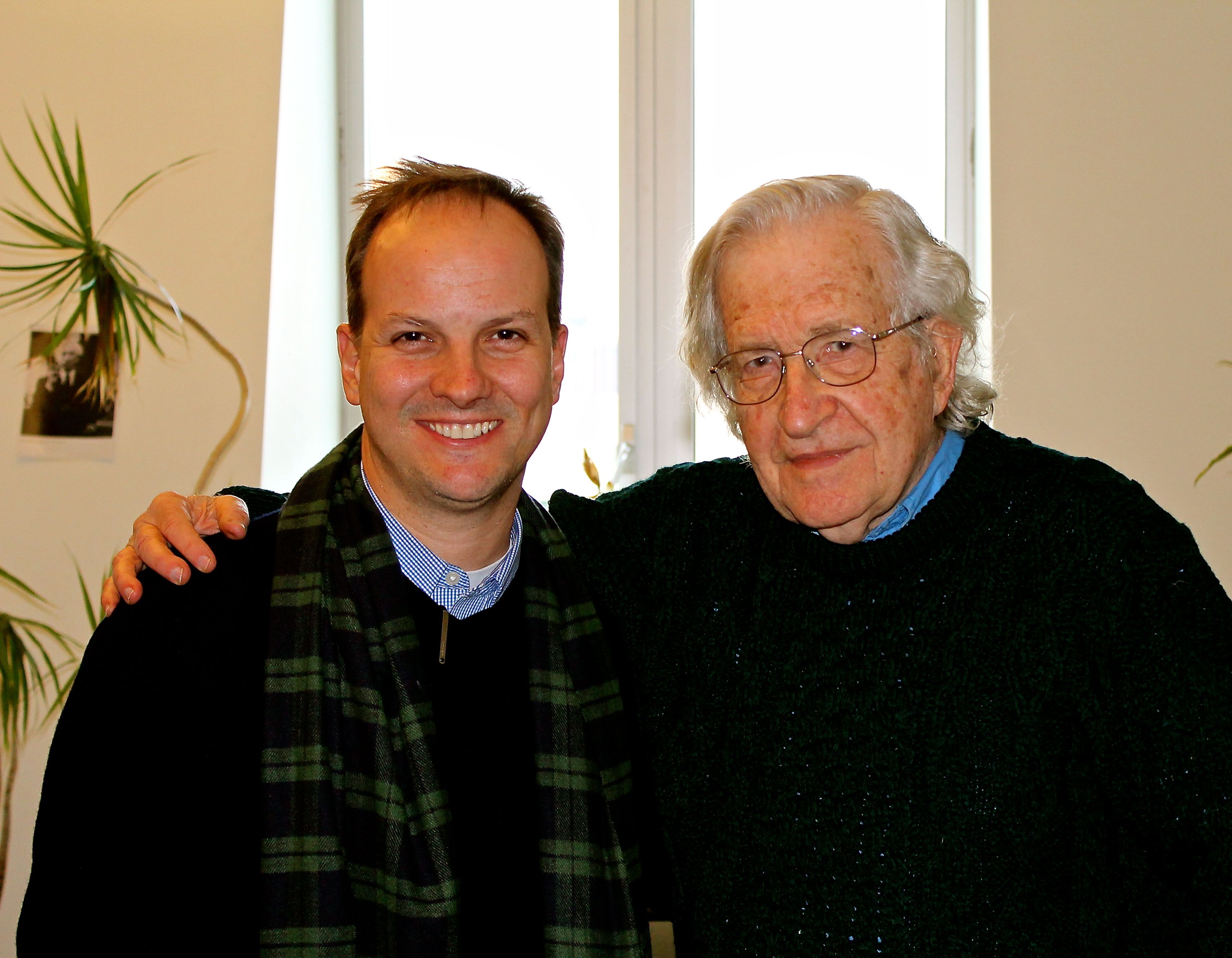(Editor’s Note: The following post was written by alumnus Miguel Ángel Santos (ITFD ’11 and Economics ’12). Follow him on Twitter @miguelsantos12 or at his blog)

The first time I heard of Noam Chomsky was in the early nineties. During my senior year in college I was assigned to read a small book, “The true thinkers of our time”(1989), a gallery of interviews with a select group of scientists from a wide array of disciplines. The author, a French journalist named Guy Sorman, had chosen them using three simple criteria: 1) once they showed up in their corresponding disciplines it became impossible to keep on thinking about it in the same way; 2) they had to be alive; and 3) they were willing to talk to him.
The book covered a wide spectrum, from the origins of the universe all the way to modern economic thinking. Each section presented two or three opposing views on the same topic, which were fiercely discussed and smartly presented, allowing amateurs to grasp the frontiers of human knowledge.
Chomsky had made his way into the group deservedly. He had revolutionized the field of linguistics, posing a theory that conceived language as a biological capacity. He identified common patterns to all languages (i.e. all made up plurals by adding characters in the end, none at the beginning) and hypothesized that while the environment allows our linguistic capacity to develop, it falls short of explaining its extraordinary complexity.
I mention this to highlight the thinker, the man working alone and facing the problems and puzzles of his time through a sheer exercise of athletic thought and intelligence. The fame and scientific status he earned by making his most relevant contributions early in his life (all date from around his thirties) would be applied later to bring the world’s attention on a set of political causes, most of them left-winged, all rooted in the United States plethora of foreign policy wreckages. He became an outcast, a role he obviously feels very comfortable with, always pointing towards the elephant in the room.
This latter version of Chomsky is the one most people are familiar with.
Continue reading “Meeting Chomsky”







